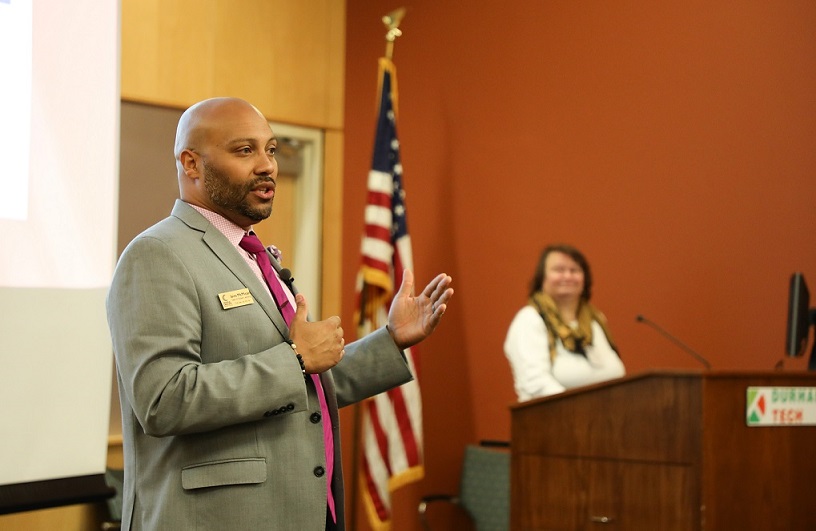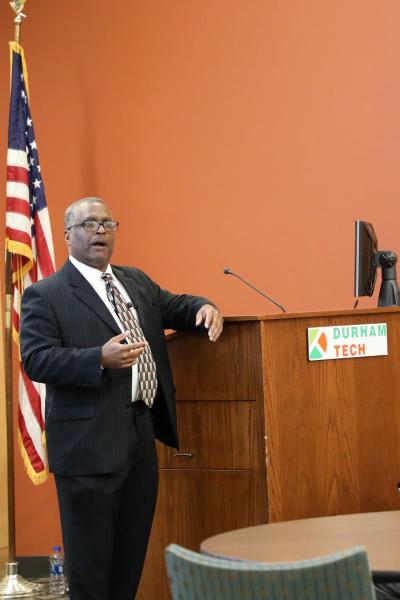Durham Tech hosts 2019 Annual Student Conduct Symposium with focus on equity

Nearly 150 leaders and representatives from 36 North Carolina community colleges gathered on the Durham Tech Main Campus on November 21 for the 2019 Annual Student Conduct Symposium. The event was sponsored by the North Carolina Community College System.
This year’s symposium, “Equity as a Cornerstone of Student Conduct,” focused on policies and procedures as well as best practices to assist community colleges in addressing student conduct issues on their campuses.
“Great leaders ponder. They ponder philosophies, strategies, and tactics to better meet students’ needs,” said Dr. James “J.W.” Kelley, Associate Vice President of Student Services at the North Carolina Community College System. “This symposium is a catalyst for pondering, individually and collectively pondering real issues of student ethnicity, campus culture, and leadership actions that may enhance or fail to enhance student success.”
The morning launched with the “Equity as a Cornerstone of Student Conduct” presentation by the three keynote speakers: General J. R. Gorham, the first African-American Brigadier General of the North Carolina National Guard; Jairo McMican, Dean of Student Learning at Central Carolina Community College; and Michael Hughes, Executive Director of Student Success and College Civility at Rowan-Cabarrus Community College.

“It was powerful hearing men of color sharing of themselves and encouraging us all to remember the importance of love and care even when dealing with conduct issues,” said Keitcha Royal, attendee and Executive Coordinator in the Office of the President at Durham Tech. “They reminded us of our student-first charge.”
McMican said inequities must be rectified on multiple fronts.
“How student conduct is being addressed is one of many components,” he said. “This symposium allowed community college leaders to share best practices and leave equipped with strategies to better handle student conduct.”
The symposium was designed for student development administrators, student conduct officers, Title IX coordinators, counselors, disability services coordinators, human resource administrators, and campus police officials.
“Equity practitioners (faculty, staff, and administrators) must take a deep dive into their own lived experiences by reflecting on the way they currently serve our students and then reframing those practices in an effort to positively impact the success of all students,” said Angela Davis, Special Assistant for Equity and Inclusion at Durham Tech.
The event consisted of three additional sessions: “Student Equity – Impact on Minority Male Success;” “Threat Assessment – Addressing Biases;” and “Reflection to Reframing.”
“Hopefully all those involved with the symposium can take a step back and reevaluate their student conduct practices,” McMican said. “All institutions need to assess how equitable or inequitable their actions are. It is not easy addressing equity. However, if you have to climb a large hill, it doesn’t get smaller by just looking at it.”
Contact Marcy W. Gardner, Coordinator for Content and Social Media, at gardnerm@durhamtech.edu

